Indigenous Governance Database
IGD Database Search
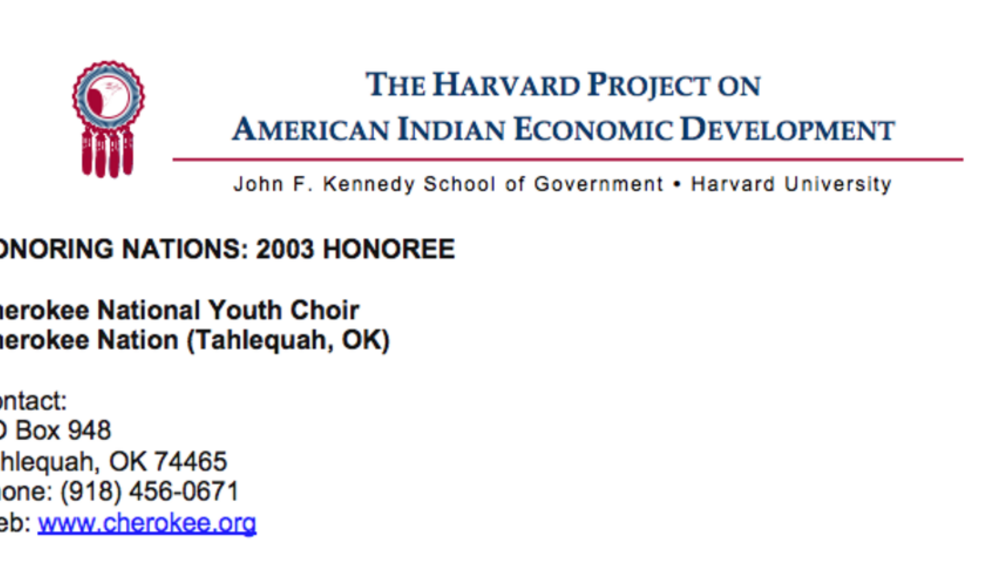
Cherokee National Youth Choir
The Youth Choir presents an innovative approach to promoting and encouraging the use of the endangered Cherokee language among its youth while also instilling Cherokee cultural pride. The award-winning choir — comprised of 40 young Cherokee ambassadors — has performed in venues across the US,…
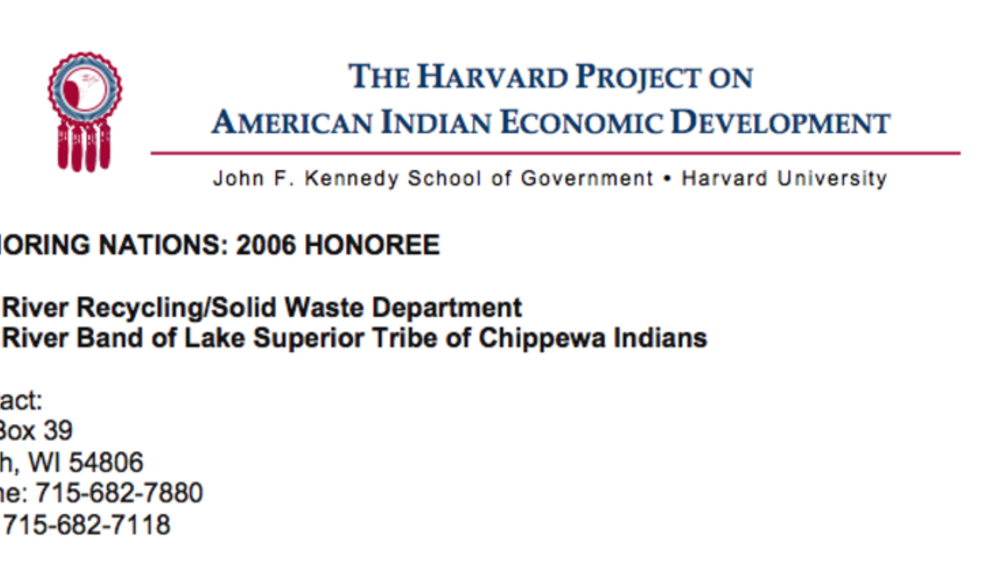
Bad River Recycling/Solid Waste Department
The Bad River Recycling/Solid Waste Department created environmentally sound practices of managing and disposing of waste generated on the reservation, ending cycles of harm to tribal citizens, lands, and water. Historically, waste was not only hazardous, but noticeable and abundant on reservation…
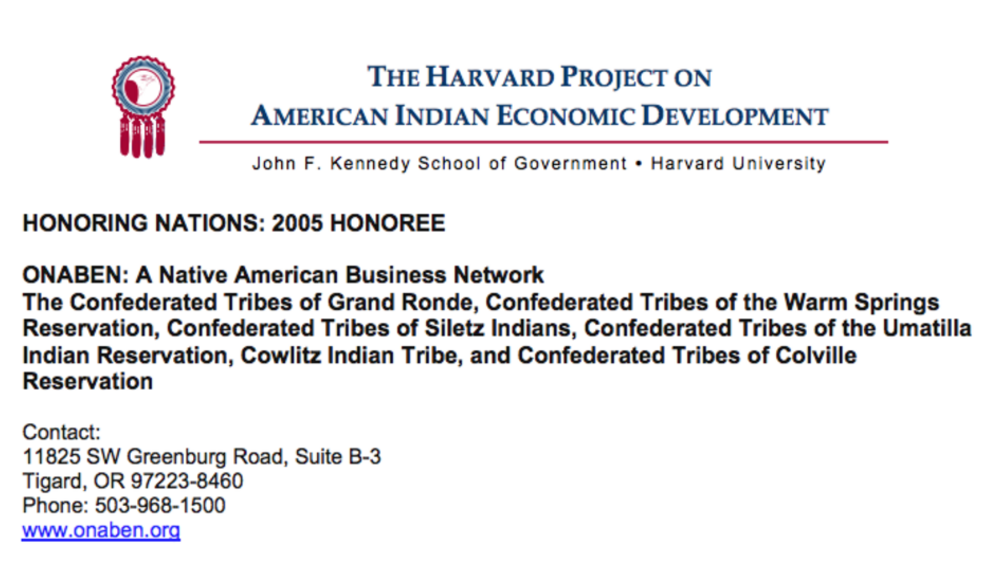
ONABEN: A Native American Business and Entrepreneurial Network
Founded by a consortium of Native nations in the Pacific Northwest, ONABEN's mission is to increase self-reliance by promoting the development of tribal-citizen-owned small businesses and the diversification of reservation economies. ONABEN's programs provide financial counseling, business…
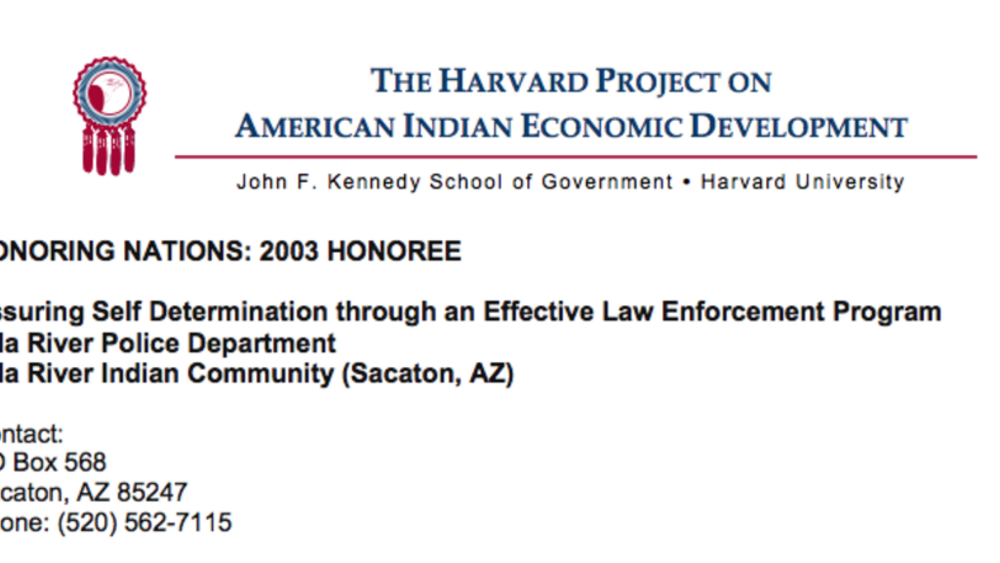
Gila River Law Enforcement Program
Serving a population of 17,000, the 92-employee Gila River Police Department operates a multifaceted law enforcement program that includes community-based policing, neighborhood block watch programs, a citizen’s police academy, and bike patrols. Since assuming control over law enforcement in 1998,…
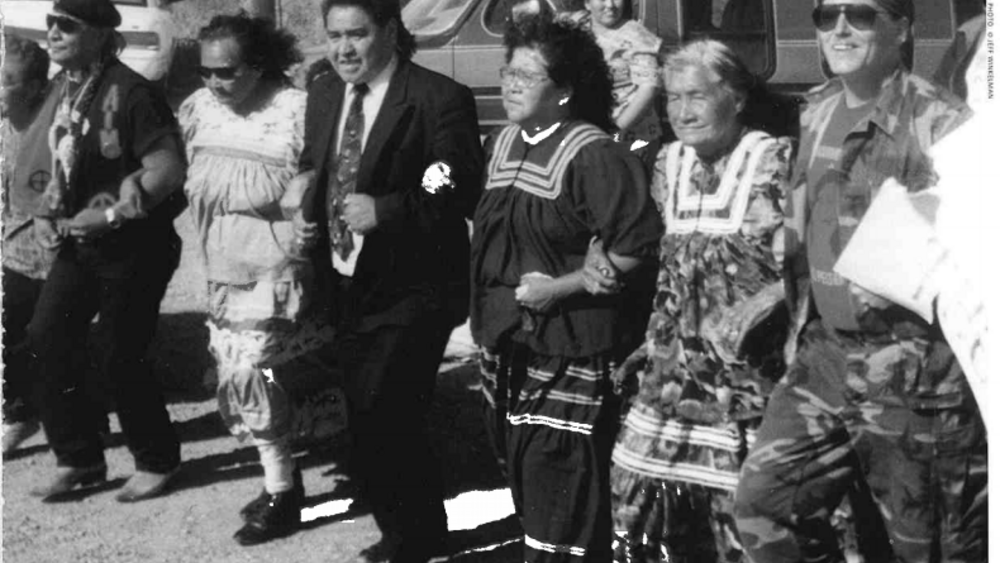
Broken Government: Constitutional Inadequacy Spawns Conflict at San Carlos
This article, published in 1999, examined the governmental conflict taking place at the San Carlos Apache Tribe. It explored the historical constitutional roots of the conflict, specifically the ineffectiveness and culturally inappropriate Indian Reorganization constitution and system of government…
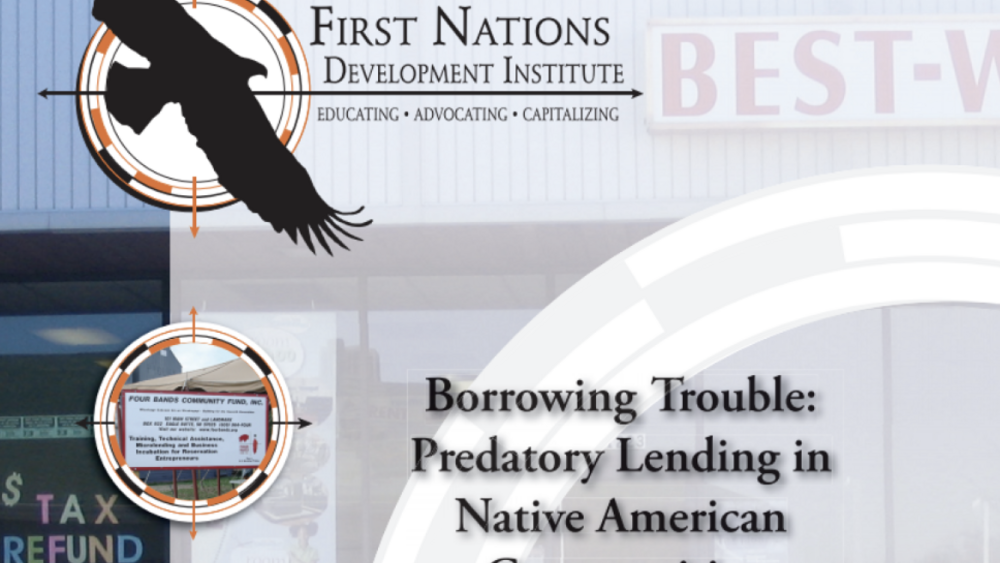
Borrowing Trouble: Predatory Lending in Native American Communities
With the collapse of the subprime mortgage lending market, predatory lending has become a significant national concern. In Native communities, however, predatory lending has been a major concern for years, since abusive lending practices have tended to proliferate more in minority and low-income…
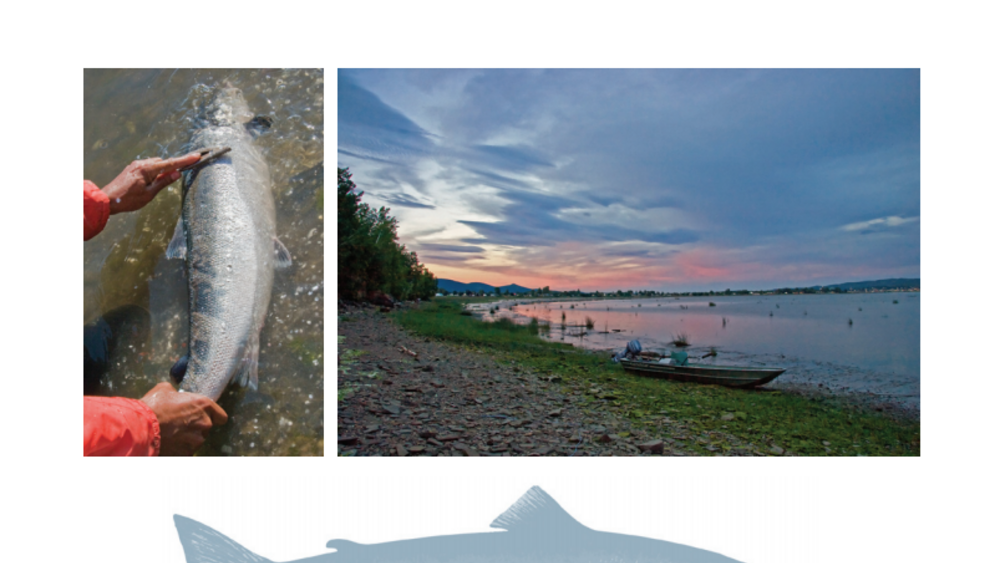
Making First Nation Law: The Listuguj Mi'gmaq Fishery
This is a case study that explores Listuguj Mi'gmaq law, an assertion and manifestation of the nation's right to fish and to govern its people, lands, and waters in its own ways. It discusses the genesis, application, and effects of the law and how a First Nation not only reclaimed their inherent…

Indigenous Peoples, Poverty and Self-Determination in Australia, New Zealand, Canada and the United States
Australia, New Zealand, Canada and the United States are among the world’s wealthiest nations. It is an often noted irony–and an occasional source of embarrassment to the governments of these countries–that the Indigenous peoples within their borders are in each case among their poorest citizens.
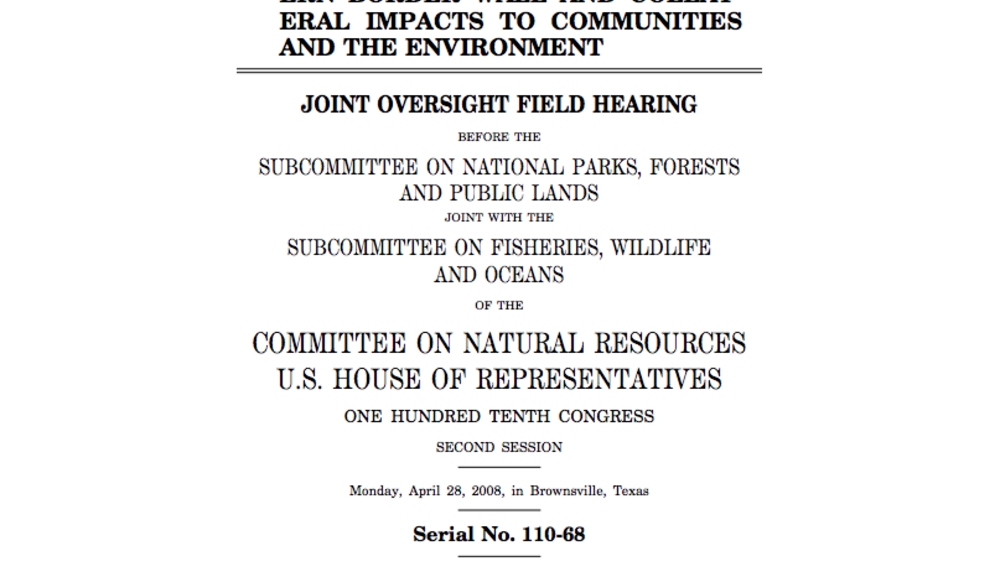
Walls and Waivers: Expedited Construction of the Southern Border Wall and Collateral Impacts to Communities and the Environment
Joint Oversight Field Hearing before the Subcommittee on National Parks, Forests and Public Lands Joint with the Subcommittee on Fisheries, Wildlife and Oceans of the Committee on Natural Resources U.S. House of Representatives.Ned Norris, Jr., chairman of the Tohono O'odham Nation, provided a…
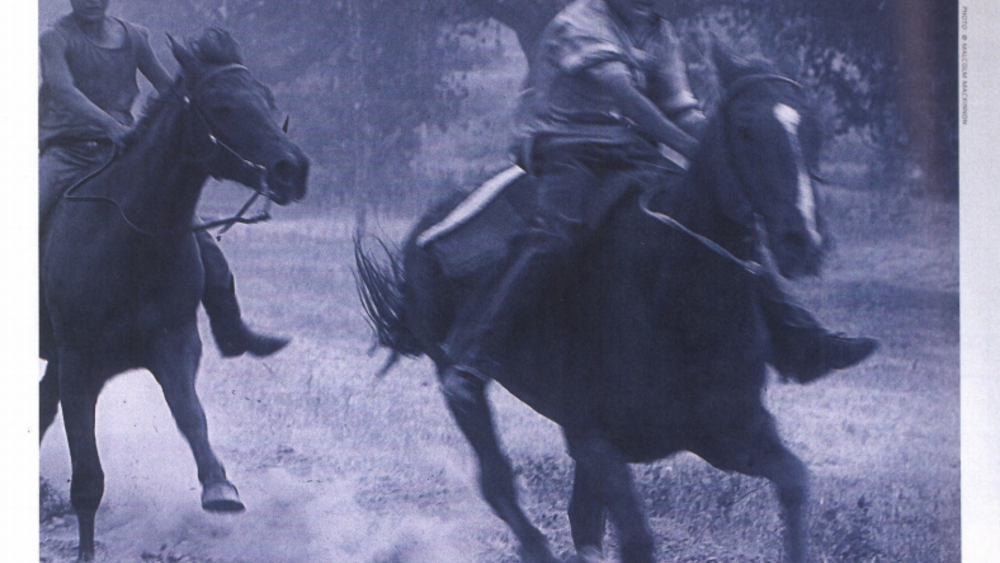
Pine Ridge Renaissance: From the Ground Up, Sovereignty Can Be Real
This article chronicles the groundswell of small business development taking place on the Pine Ridge reservation in South Dakota, home to the Oglala Sioux Tribe. It examines the critical importance that citizen entrepreneurs can and do play in developing sustainable economies in Indian Country.
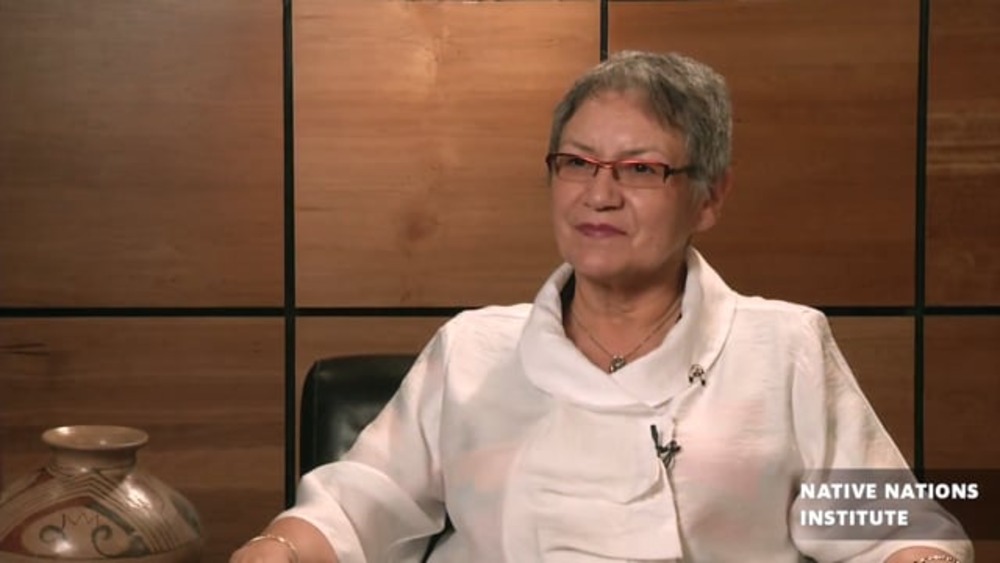
Sophie Pierre: Governance the Ktunaxa Nation Way
Sophie Pierre is a respected native leader that has been at the forefront of building key components and infrastructure for modern self-governance in the Ktunaxa Nation. Her tenure as Chief Commission for the BC Treaty Commission appointed by governments of Canada and British Columbia and the First…
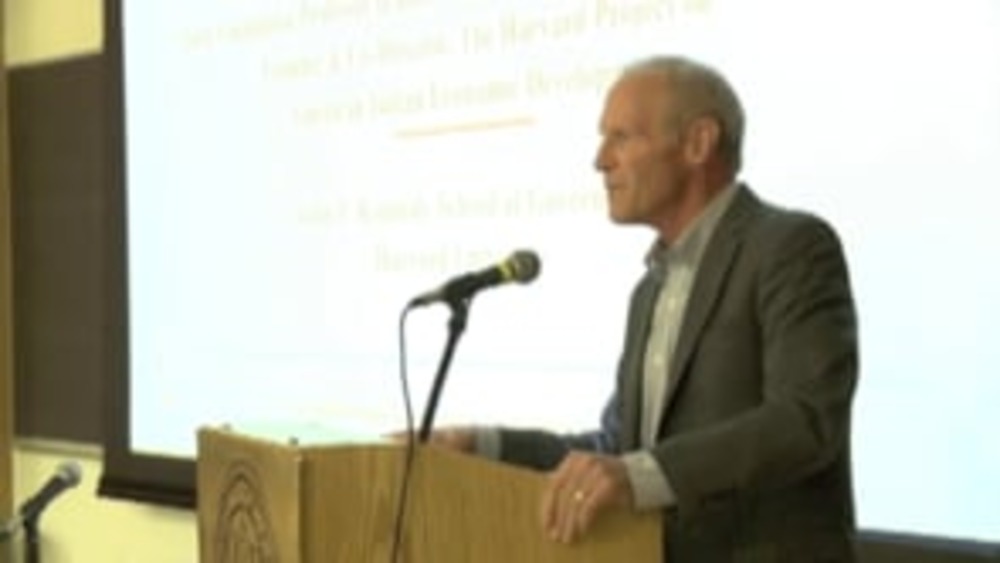
Good Native Governance: Lunchtime Keynote Address
UCLA School of Law "Good Native Governance" conference lunchtime keynote speaker, Joseph P. Kalt discusses research in the areas of good Native governance. This video resource is featured on the Indigenous Governance Database with the permission of the UCLA American Indian Studies…
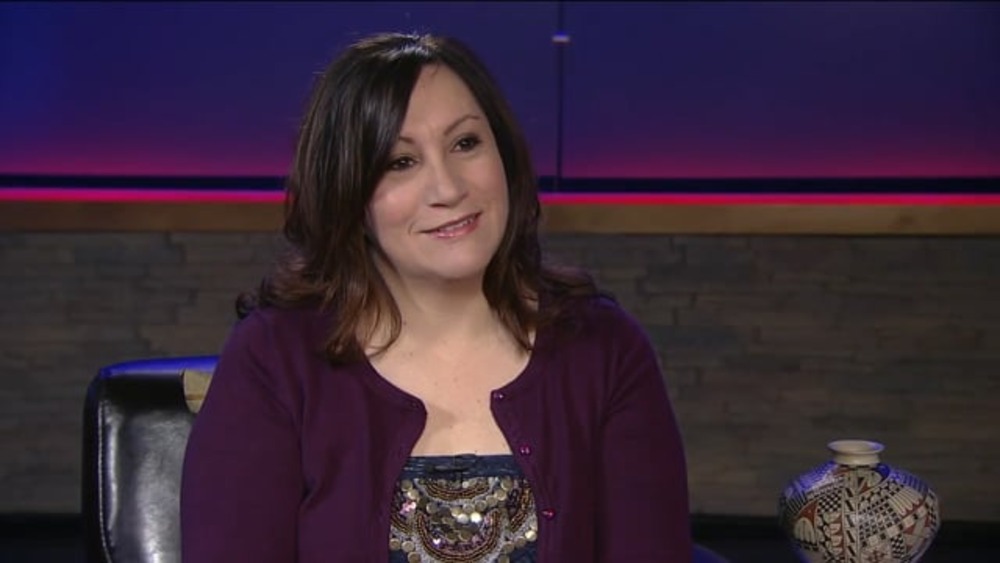
Eileen Briggs: The Importance of Data and Community Engagement
Eileen Briggs is a citizen of the Cheyenne River Sioux Tribe and is the Executive Director of Cheyenne River Sioux Tribal Ventures. She is also the Principal Investigator on "Cheyenne River Voices Research" — a reservation-wide research project including a household survey of over…
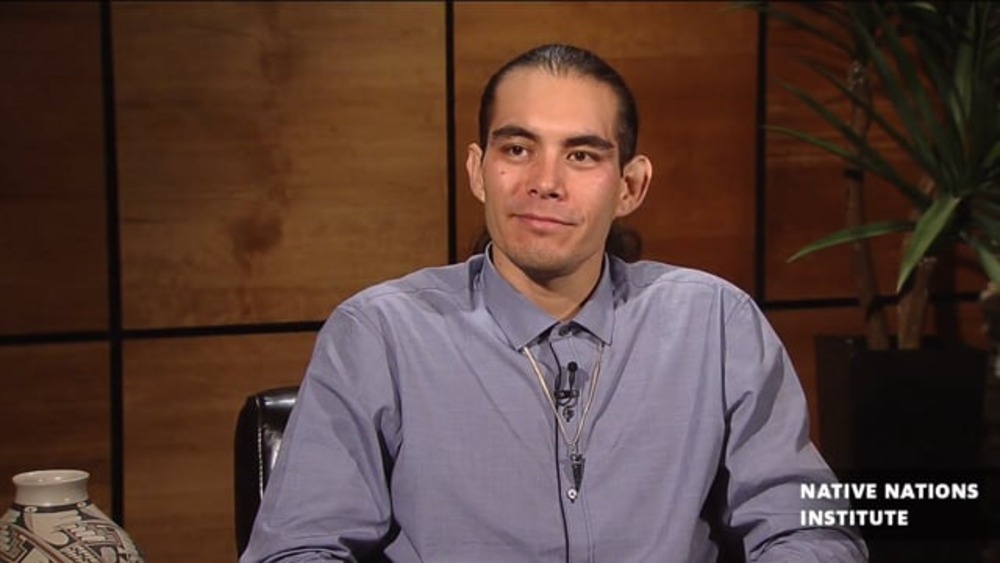
Kristopher Hohag: The Challenge of Governance
Kristopher Hohag, former Vice Chairman of the Bishop Paiute Tribe, recalls his experiences as a young leader participating within tribal government. He provides a brief history of the Bishop Paiute Tribe and recounts the tribe's endeavors to provide a better way of life for the people.…
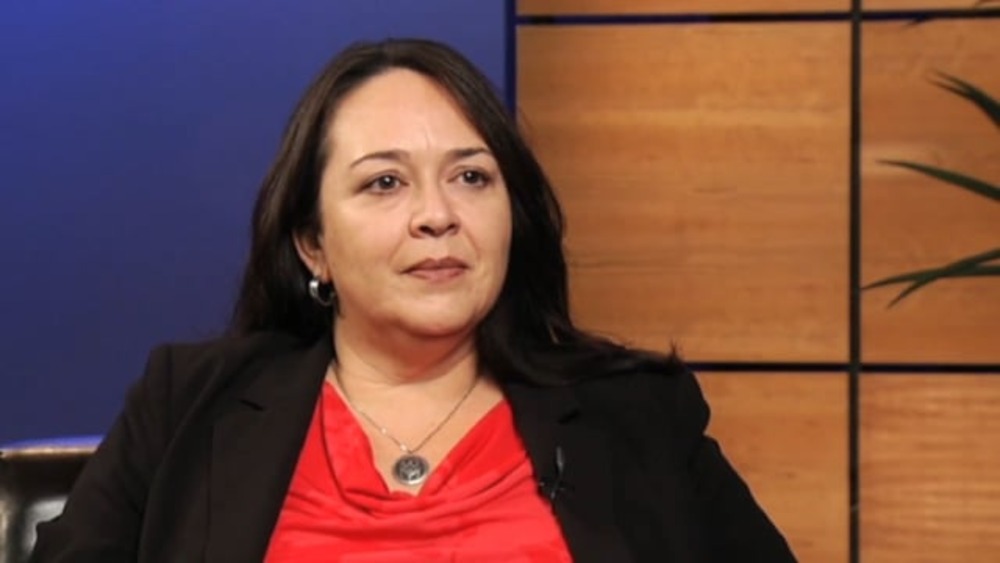
Devon Lomayesva: Making Constitution Reform and Tribal Law Work
Devon Lomayesva, a citizen of the Iipay Nation of Santa Ysabel in California, offers her perspectives on asserting tribal law in a P.L. 280 state. The Iipay Nation of Santa Ysabel underwent a constitutional reform process, and Devon shares her experiences with and perspectives of that…
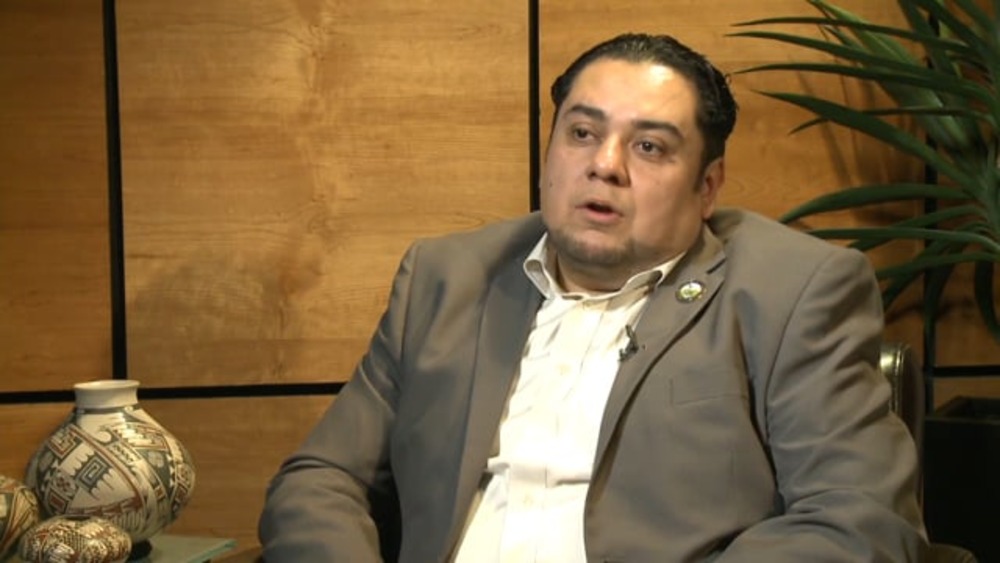
Rudy Ortega, Jr.: Asserting Sovereignty and Self-Governance
Rudy Ortega, Jr., then Vice President and citizen of the Fernandeño Tataviam Band of Mission Indians, shares his experiences leading his community and engaging in Fernandeño Tataviam self-governance in spite of his nation not yet being a state or federally recognized tribal…
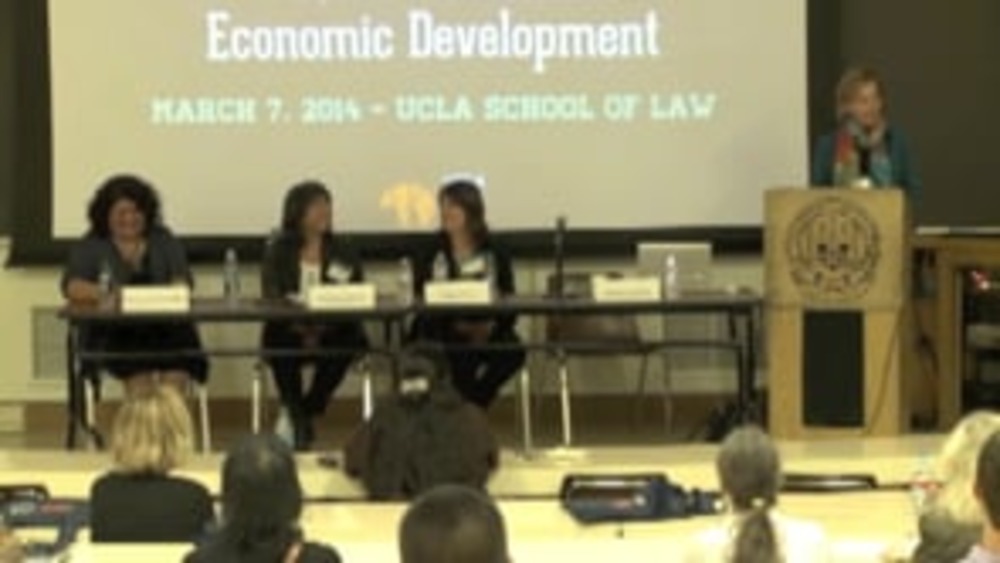
Good Native Governance Plenary 3: Innovative Research in Education: Educating Tomorrow's Tribal Leaders
UCLA School of Law "Good Native Governance" conference presenters, panelists and participants Tiffany S. Lee, Sheilah E. Nicholas, and Tarajean Yazzie-Mintz focus on the process of educating tribal leaders, youth, and entire communities through relationships and collaborations. This video…
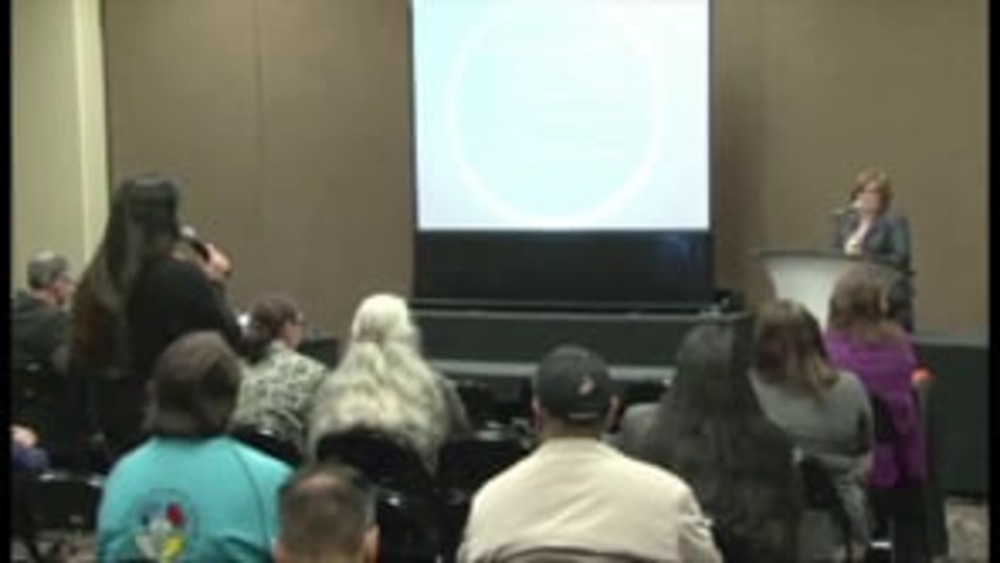
Jim Gray and Patricia Riggs: Citizen Engagement: The Key to Establishing and Sustaining Good Governance (Q&A)
Presenters Jim Gray and Patricia Riggs field questions from audience members about the approaches their nations took and are taking to engage their citizens and seed community-based, lasting change. In addition, session moderator Ian Record offers a quick overview of some effective citizen…
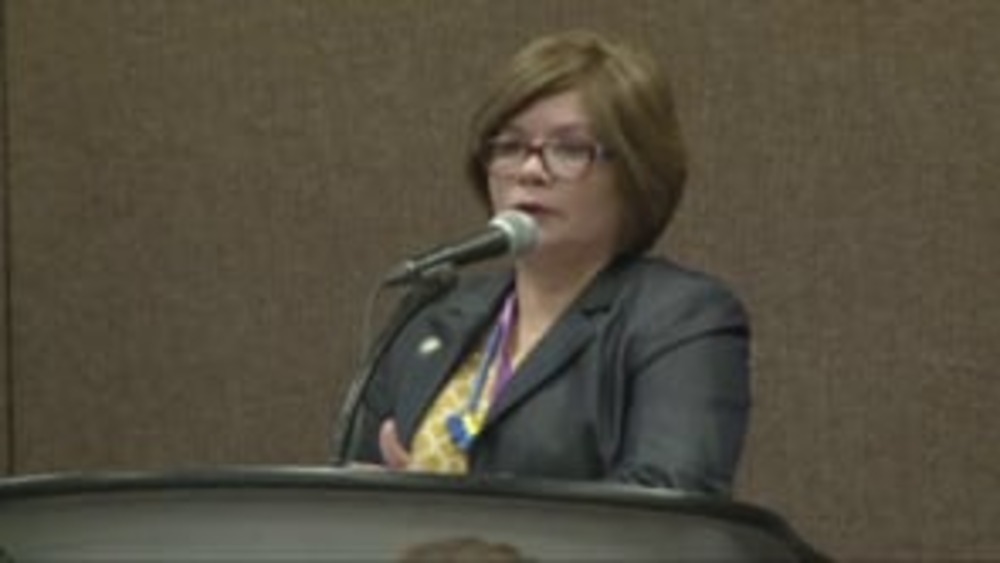
Patricia Riggs: The Role of Citizen Engagement in Nation Building: The Ysleta del Sur Pueblo Story
Patricia Riggs, Director of Economic Development for Ysleta del Sur Pueblo (YDSP), discusses how YDSP has spent the past decade developing and fine-tuning its comprehensive approach to engaging its citizens in order to identify and then achieve its nation-building priorities. This video resource…
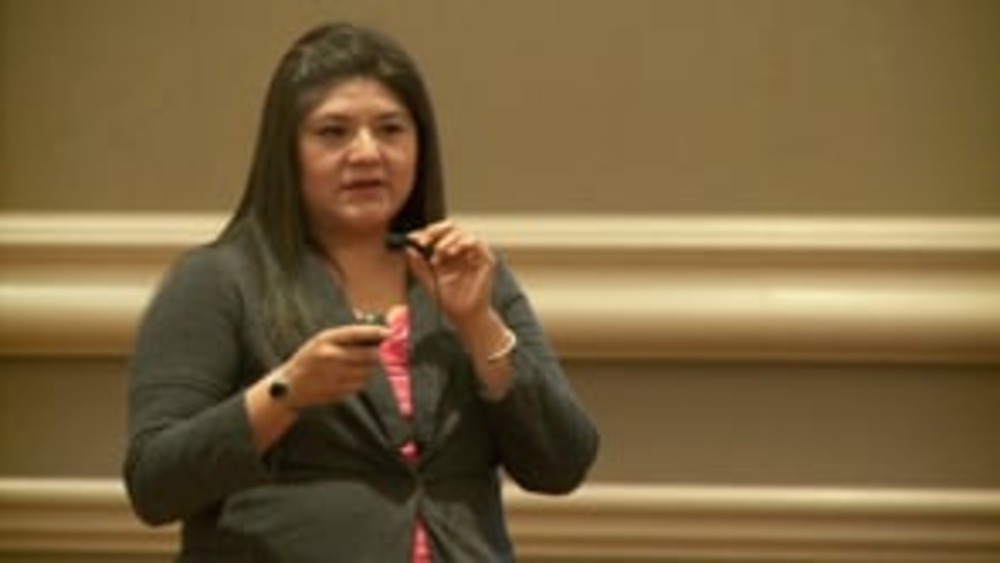
Shannon Douma: Cultivating Good Leadership: The Santa Fe Indian School's Summer Policy Academy
Shannon Douma (Pueblo of Laguna) provides a detailed overview of how the Santa Fe Indian School's Summer Policy Academy works to develop Pueblo youth to ably take the leadership reins of their nations through a rigorous curriculum designed to build up their sense of cultural identity and personal…
Pagination
- First page
- …
- 30
- 31
- 32
- …
- Last page
